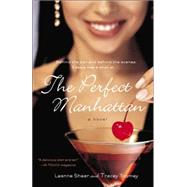
What is included with this book?
Leanne Shear writes for New York magazine, US Weekly, and In Touch magazine. Tracey Toomey has appeared on All My Children and Law & Order, and in the Oscar-winning film A Beautiful Mind. When they aren’t writing and acting, Leanne and Tracey can be found behind the bar at Onieal’s in New York City’s Soho and the Star Room in the Hamptons, where they first met and became great friends.
The New copy of this book will include any supplemental materials advertised. Please check the title of the book to determine if it should include any access cards, study guides, lab manuals, CDs, etc.
The Used, Rental and eBook copies of this book are not guaranteed to include any supplemental materials. Typically, only the book itself is included. This is true even if the title states it includes any access cards, study guides, lab manuals, CDs, etc.
Excerpted from The Perfect Manhattan by Leanne Shear, Tracey Toomey
All rights reserved by the original copyright owners. Excerpts are provided for display purposes only and may not be reproduced, reprinted or distributed without the written permission of the publisher.